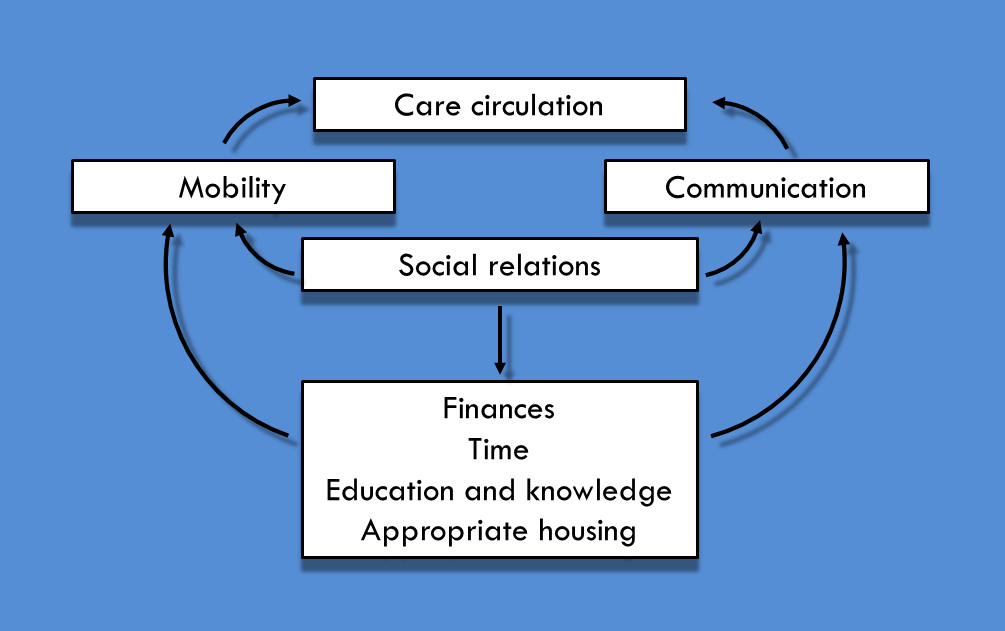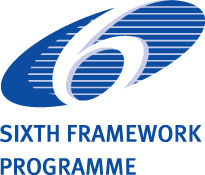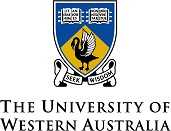
Transnational care practises of Latin American migrants living in Australia and Europe : A comparative perspective
This Project was funded by Marie Curie Outgoing International Fellowship and conducted by Dr Laura Merla at the Institute of Social Sciences of the University of Lisbon (ICSUL, the European Host) and the Department of Anthropology and Sociology of the University of Western Australia (UWA), in collaboration with Prof. Loretta Baldassar and Prof. Karin Wall
This research explored how transnational practices of care can be influenced and constrained by weak levels of social, economic and cultural capital, and examined the impact of national migration and employment policies on the capacity and ability to provide transnational care. Care-giving not only includes financial assistance, but also emotional, practical support and accommodation that can be exchanged transnationally through the use of various communication technologies, and personal care which requires co-presence and can only be exchanged during visits.
The capability to exchange care and support across distance requires a series of resources, such as money, time and knowledge.
This Project was funded by Marie Curie Outgoing International Fellowship and conducted by Dr Laura Merla at the Institute of Social Sciences of the University of Lisbon (ICSUL, the European Host) and the Department of Anthropology and Sociology of the University of Western Australia (UWA), in collaboration with Prof. Loretta Baldassar and Prof. Karin Wall
This research explored how transnational practices of care can be influenced and constrained by weak levels of social, economic and cultural capital, and examined the impact of national migration and employment policies on the capacity and ability to provide transnational care. Care-giving not only includes financial assistance, but also emotional, practical support and accommodation that can be exchanged transnationally through the use of various communication technologies, and personal care which requires co-presence and can only be exchanged during visits.
The capability to exchange care and support across distance requires a series of ressources, such as money, time and knowledge.

The State plays a determinant role in facilitating or limiting family solidarity by facilitating or hindering people’s access to these resources. The capability of migrants in Australia and Europe to exchange care at a distance is strongly influenced by both home and host country formal institutional and informal policies. These include- but are not limited to - migration policies; employment, work-family balance, education and gender equality policies; airline and communication regulation and the development of communication infrastructures.
A focus on the capability to be mobile reveals important differences between the Australian and the European context. Of particular significance is the unequal access to the host country's territory, due to differing visa regulations. Migrants in Australia and Belgium have limited resources to invest in transnational family solidarity due to a difficulty to access a similar employment position to the one held in the home country, due to differing migration statuses and/or a lack of recognition of their qualifications. They are also confronted to a significant limitation of their capability to communicate with their distant kin due to the lack of communication infrastructures in their homeland.
Extended family solidarity partly helps migrants overcome the difficulties they face in participating in their parent's caring. Family networks contribute to the exchange of information between parents and their distant kin, helping compensate for the lack of communication infrastructure or the ageing parent's inability to make use of new communication technologies, they provide financial support to travel and can even help overcome problems generated by visa regulations restricting the parent's ability to visit their children.
A key finding of this study is that institutional policies, both in home and host countries, completely ignore the existence of transnational care and the important role it plays in terms of well-being both for caregivers and the cared-for. There is an absence of specific policies aimed at facilitating the exchange of care between ageing parents and their distant kin in the three countries. This is particularly evident in the strict and tightly controlled parent migration scheme and family reunification scheme, where the overriding philosophy is that elderly migrants are a burden to society. There is no recognition of the significant unpaid services parents can provide their adult children. But equally importantly, there is no awareness of how migrants' wellbeing can be significantly influenced by the health of their distant parents and the ease with which they can enjoy transnational caregiving.
Policies facilitating the exchange of care across borders may include, among others, leave policies that acknowledge the specific needs of transnational families (for instance, by offering a sufficient number of paid leave to allow workers to attend funerals abroad); migration policies allowing for a greater mobility of elderly foreign citizens wishing to pay extended visits to their children, based on the recognition that elderly people can be both receivers of care and providers of care (such as childcare); and policies aimed at improving transnational communication via affordable telephone calls and internet access and training to new communication technologies.
This project was financed by the EC 6th Framework Programme - Marie Curie Outgoing International Fellowship (MOIF-CT-2006-039076 Transnational care)



